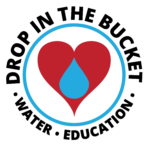Rhoda Anayo
Rhoda Anayo is a passionate entrepreneur, wife, and mom to six children, all of whom attend school. Her eldest son is a senior in high school and wants to continue his education at a university, but will first need to pass his exams at the end of this year. Rhoda’s husband grows sugar cane, which […]
Global Hand Washing Day 17th October 2015.
This year’s theme was “Raise a Hand for Hygiene.” To commemorate the cause, Drop in the Bucket spent the day at the Kudo Primary School in Torit, South Sudan.
Our New Drilling Compressor
Kyere Township Primary school educates more than 1000 children. The well will also benefit 2 surrounding villages that combined have a population of more than 1,000. Before this well was drilled, the nearest source of clean water was more than 2 kms away
DROP, One World Futbol and Etop Radio
A school that does not have active extracurricular activities like football, netball—or which lacks a nearby water source—will have low pupil enrollment, attendance and retention, especially for girls. Games and clean water keep children at school.
Madera School For The Blind Update
So far, your donations have build two sets of bathrooms complete with flushing toilets, sinks and even showers. The 100 boys and girls living at the school finally have access to decent sanitation for the first time in the school’s history
Drop in the Bucket and the One World Play Project
DROP already works to improve sanitation in schools throughout the region by building toilets and sinks and showers and by building clean-water wells. When children are healthier, they’re able to attend school regularly. Educational experts also believe that play is an integral part of school.
Santa Monica Observer Article About Drop in the Bucket
“Literally everybody was sick with something,” said Stacey. “And almost all of it was caused by the dirty water they were drinking. We knew we had to do something to help but we knew we had to get to the cause rather than just continuing to treat the symptoms.” The solution was clean drinking water
Hope Junior Primary School Article From The New Vision
The school is new performing better than ever at their end-of-term exams. Before the toilets, many children—primarily girls—were forced to drop out. Not only are many of them back in school now, but other kids in the district are coming to the school as well.
Sarah Awelping
Sarah Awelping is currently a 19-year-old sixth grader at the Salam Girls’ School in Aweil, South Sudan. When she was 15 years old, she became close with a boy, Garang, from her neighboring village and over time, the two fell in love. They hoped to one day marry, but first, they wanted to focus on […]
Jimmy Apunyu
Jimmy Apunyu is a 15-year-old boy in seventh grade at Ating Tuo Primary School in Alebtong, Uganda. He and his older siblings are responsible for collecting the water his family drinks, and that his sisters and mother use for making dinner and washing clothes. Jimmy’s family live in a village called Oyon Alwevi. It is […]
